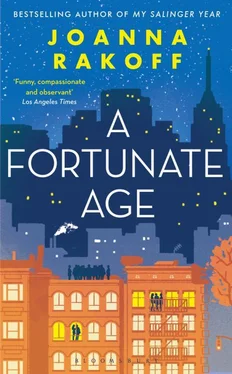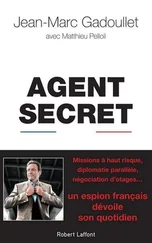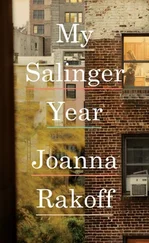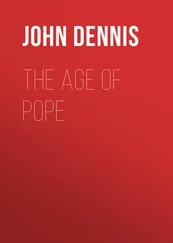“Sadie, it’s just what’s done ,” sighed Rose. “Grief makes people hungry.”
“Lox and bagels,” said Emily, putting her hand on top of Sadie’s. “Let’s do that.”
“All right.” Rose smiled. “I’ll call Russ & Daughters and order platters. You girls start on your list.”
But there were children to attend to, children getting bored and fussy and tired and wanting to be taken to the park or home for dinner and a bath and bed, and so they wrestled them into sweaters and jackets and strapped them into strollers and carriers, and kissed Rose good-bye, promising they would return tomorrow, list in hand, and start making phone calls. Rose’s housekeeper, Olga, could watch the kids.
“I would really think about making those calls tonight,” Rose said as the girls maneuvered their charges down the front steps.
“Okay, okay, Mom, we’ll make them tonight,” said Sadie, over Mina’s rising wail. “I’ve got to walk,” she told the others crossly, the minute the door clicked shut. “This child is exhausted.”
“Let’s walk,” agreed Emily. “We can go down to Sixty-third and get the F.”
Slowly, they made their way across Ninety-second Street, three women and four children, past the narrow wooden houses that Sadie had loved so as a child—the only such in Manhattan—and around the streams of other young mothers, their blonde heads arced over thin cell phones, and diminutive matrons walking small, fluffy dogs, and children, flocks of children, gray and blue and scarlet uniforms visible beneath their open coats. It was four o’clock, but it felt, Beth said, much later, for the sky had grown dark and thick with clouds, just as it had six years earlier, when Lil had married. On Sadie’s chest, Mina had fallen asleep, her dark head lolling onto her small shoulder. “The autopsy should be done by now, right?” Sadie asked quietly, turning her head toward Emily.
“Should be,” Emily agreed. “They’ll call the Roths.”
“Not you? Because you were there with her?”
Emily shook her head. “Next of kin.”
“So what exactly happened?” asked Beth, in a thin, strangled voice. She did not, Sadie thought, really want to know the answer. Typical Beth.
“I don’t know,” Emily told her. “She had the flu—you know, fever, chills, bad cough. And it didn’t go away. She called me and asked if we knew a clinic she could go to—you know, she didn’t have insurance. And we gave her a couple of names, doctors who have a sliding scale. But we weren’t worried. People always get sick when the seasons change, and there’s a really bad flu going around this year. They’re saying everyone should get vaccinated.”
“Yeah, I already did,” said Beth.
“Yeah, so, I guess she decided to ask a neighbor of hers, who’s, I think, a doctor at a homeless shelter, for advice—”
“Oh, no,” groaned Sadie.
“And she told Lil that she just had the flu, that she didn’t need antibiotics. She should take echinacea and vitamin C and rest. And then she started having trouble breathing and she got scared. She called us and we took her to the hospital. They said it was pneumonia—”
“Of course!” said Sadie furiously.
“—and they started giving her antibiotics and fluid, but she still just looked awful, and a few hours later—” Her voice, all of a sudden, became something akin to a choke and she stopped dead, in front of an optician’s shop, the window filled with glittering frames. “I don’t know,” she said. “I don’t know what happened. I don’t understand. They’re saying maybe the hantavirus. She’s been sick so much this year. But I just—” She began, quietly, to cry. “How could she have died? She had the flu .” Beth grabbed her sobbing friend and began sobbing herself, her tears forming a dark spot on Emily’s blue coat. Bewildered, their daughters stared at them, eyes wide, then, as one, burst into tears themselves. Sadie quickly put the brake on Jack’s stroller, thinking, We’re blocking the sidewalk , and knelt before the two little girls, Mina’s head bobbing against her chest, and kissed their soft, rosy cheeks and held their small, cold hands and stroked their silky heads, until Jack called, “Mama, Mama,” and she turned him to face the girls, arranging the strollers in a little huddle. “It’s okay,” she told the children. “Everything is fine. We’re just a little sad. But it’s nothing for you to worry about.” They looked at her silently, their eyes huge as only children’s eyes can be. “It’s nothing to do with you,” she told them, wishing she could tell herself the same thing.
In the chapel, they decided, they would have seasonal bouquets with blush roses, which were Lil’s favorite, and large daisies and hydrangeas. Nothing funereal, like calla lilies, which Lil had hated. As a child, she’d been a flower girl in a stylish Los Angeles wedding, in which all the attendants wore black and carried a single stem of the white, waxy flower. “Very eighties,” she’d told them in college, when they’d talked about the awful weddings they’d attended—and what their own weddings might be like, if they ever married, which Lil insisted she would not. They’d spoken of funerals, too, after reading The Loved One in their British Modernism class. They’d all agreed that the American way of death—to use Jessica Mitford’s term, for they’d all read that book, too, and loved it—was appalling: pumping the body full of embalming fluid and caking the face with makeup. Being Jewish, they had a particular dread of wakes, which none except Sadie had ever actually attended. “It’s creepy,” Lil had said. “Why would you want to look at a dead body. The person is gone.”
“It’s a primitive ritual.” Sadie had shrugged. “Kind of barbarian. But it gives people a sense of closure. That’s why they do it. They feel like they’ve had the chance to say good-bye.” Lil had rejected this notion as thoroughly bourgeois, based on a misguided attachment to the material. She was all for cremation.
“I’d want my ashes scattered, too,” she said.
“Where?” asked Tal.
She considered. “I’m not sure. Someplace that had some sort of significance in my life. But I don’t know where.”
“Not going to happen,” Tal had said. “You’re Jewish. You have to be buried intact, wrapped in a cotton shroud, in a plain pine box.”
And this was exactly how she would be buried, on Monday afternoon, following the service. The body had arrived that morning and was sitting in a funeral parlor in Roslyn. The funeral would not, Mrs. Roth had explained, take place within the two days specified by Jewish law, because of the autopsy and because of the large number of family and friends traveling in for the service and funeral. Sadie, who had somehow become the Roths’ contact, had refrained from mentioning that Lil would have preferred cremation. “What does it matter, right?” Emily said. “It’s horrible, but the funeral, all this, it’s for the living, isn’t it?”
Monday morning came quickly, as gray as the days that preceded it. The group rose early, dressing carefully in their most sober garments—“navy, gray, dark brown,” Rose had instructed them tersely, “black is just for the family”—and hurrying up to the synagogue to get things ready. Emily and Beth brought their little girls over to Sadie’s this time, where the neighbor’s nanny would tend to them, for a king’s ransom. Jack would go home with a friend after school. “Can we get coffee?” Emily asked, as they rode the long escalator up from the Sixty-third Street subway stop. “I feel like I’m about to fall apart.” And so they stopped at a bakery and bought tall cups of coffee and oversized, sticky Danish, which they ate in big, greedy bites in the synagogue’s downstairs function room, while they waited for the platters of fish and bagels to arrive. Rose was right, grief made them hungry. When the trays arrived, at nine forty-five—after the florist had installed her bouquets in the chapel, and the wine and beer and soda had been arranged to Rose’s liking, the bartender Rose had insisted on hiring installed at his perch—they gazed at them longingly. “It’s okay to pick,” said Rose, folding a piece of sable into her mouth. “But we need to slice the bagels.” Like sleepwalkers, the girls obeyed, wondering where Dave might be—he had promised to arrive at nine—and why, it seemed, men were excused from all the nasty bits of life. Their husbands, all three, had gone to work, promising to meet them at the service.
Читать дальше












